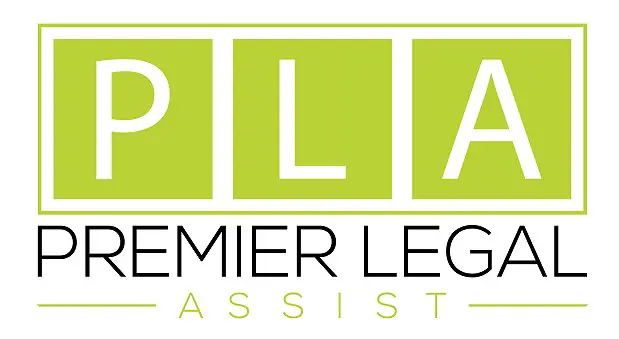Reading Borough Council Housing Repairs Are ‘Slow and Inefficient’
A recent investigation has revealed that the social housing provider has been criticised for the number of overdue housing repairs, with over 1600 jobs not completed.
Reading Borough Council manages around 5800 council homes and is responsible for their upkeep. A typical portfolio of this size could be expected to have around 1,000 outstanding repairs at any one time.
An investigation by the Regulator of Social Housing found that 1,600 repairs were outstanding in February 2025; this number had increased to over 1,790 by the end of May.
Regulator of social housing
The Regulator of Social Housing is a government-backed organisation whose objectives were set out in the Housing and Regeneration Act 2008. Its focus is on improving the social housing sector, and since April 2024, it has had the authority to conduct regulatory inspections of social landlords.
The Regulator’s inspections cover topics such as governance, value for money, accountability and tenancy standards. The Regulator can take action if standards are breached and there is a “significant risk to tenants or potential tenants”.
Social landlord inspection by the Regulator
An inspection of Reading Borough Council’s social housing service in February 2025 highlighted several issues. The service had:
- Failed to provide an effective and timely repairs service, with around 1,600 overdue repairs at the time of the inspection.
- Only surveyed half of its tenants’ homes over the past five years.
- Failed to provide meaningful opportunities for tenants to scrutinise its performance, and did not give all tenants access to a fair and effective complaints process.
As a result, the Regulator issued a C3 grading and the following judgment:
“Our judgement is that there are serious failings in the landlord delivering the outcomes of the consumer standards and significant improvement is needed.”
C3 is one of four consumer grades, where C1 is the best and C4 is the worst. The Regulator explains:
“A C3 grade means that there are serious failings in the landlord delivering the outcomes of the consumer standards, which the landlord’s current arrangements are not strong enough to put right. This will be significantly impacting on service outcomes for tenants and/or accountability to tenants. We expect the landlord to develop a plan that will drive significant change and to share that with tenants. Our engagement with the landlord will be intensive and we will seek evidence that gives us the assurance that sufficient change and progress is being made.”
The Regulator has placed Reading Borough Council under the Provider Improvement Regime, meaning there will be ongoing monitoring of the improvement programme, and evidence of significant changes and progress being made will be gathered.
Reading Borough Council’s response
Matt Yeo, Lead Councillor for Housing, said the council was ‘disappointed’ with the inspection outcomes, but areas identified for improvement were already on the council’s Improvement Plan. Of particular focus would be the responsiveness of the housing repairs service.
Since the end of April 2025, Reading Borough Council has carried out:
- 91.2% of emergency repairs within 3 hours
- 48.6% of urgent repairs within two working days
- 91.3% of routine repairs within 15 working days
Mr Yeo went on to say that the service had “been working hard to make improvements” but admitted that the number of overdue repairs stood at 1,791 at the end of May 2025.
Clearly, there is still room for improvement, and tenants need somewhere to turn if they feel their landlord has not adequately addressed their complaints.
Housing Ombudsman Service complaints
Initially, complaints must be raised and investigated by the landlord through their own internal complaints process. If the tenant is unhappy with the outcome or the landlord hasn't handled the complaint properly, they can take their case to the Housing Ombudsman.
The Housing Ombudsman Service is a government-backed body that investigates complaints between tenants and social landlords, such as local authorities and housing associations.
The Ombudsman can investigate issues with housing management, including how landlords address complaints about property condition, repairs, and charges, and has the power to award financial compensation and ensure works are carried out.
Some people prefer to instruct a solicitor to assist them in making a housing disrepair claim. The process can be complicated and time-consuming, and having a legal representative by your side can be reassuring.
Premier Legal Assist can help
At Premier Legal Assist, we work with a team of specialist solicitors who have in-depth knowledge of housing disrepair law, handling cases involving Housing Associations and Local Authorities nationwide. The specialist housing lawyers work on a wide range of disrepair and complaint cases on a ‘no-win, no-fee’ basis, including claims relating to:
- Mould, fungus or damp
- Leaks, flooding or water damage
- Cracks and structural damage
- Defective roofing or gutters
- Defective brickwork
- Insect infestations
- Faulty plumbing, heating and broken boilers
- Vermin infestations (rats/mice)
- Electrical faults
- Broken doors, windows, and locks
- Housing Ombudsman claims
To find out if you are eligible to make a housing disrepair claim, please contact us by completing the contact form. We offer a free, no-obligation case assessment.
Other Insights
Important Information
Premier Legal Assist is a claims management company. You do not need to use a claims management company to make your complaint, you can complain to the organisation you are complaining about directly. If the issue is not resolved, you can refer it to the relevant independent Ombudsman service for free.





